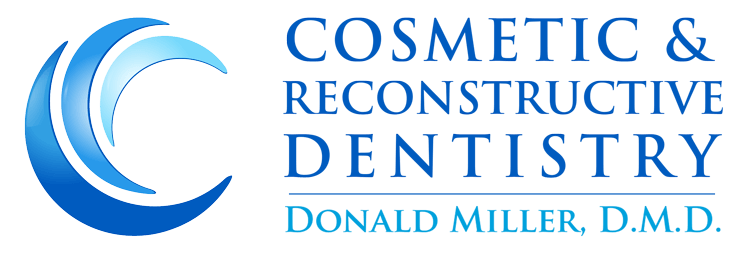TMJ Treatment in Fairfield, CT
Cosmetic & Reconstructive Dentistry provides treatment for TMJ disorders in Fairfield, CT. Call 203-255-6878 or click here to book an appointment.
The temporomandibular joint (TMJ) is a small, hinge-like joint that connects the jawbone to the skull. It’s not a joint most of us are even aware of—until it starts causing pain. TMJ disorders can impact patients’ overall quality of life with intense jaw pain, debilitating headaches, and difficulty eating. The good news is that there are many TMJ disorder treatments to help you get your life back and be pain-free again.
Signs of TMJ disorder (TMD) include:
- Soreness in the temples, cheeks, and jaws
- Earaches or pain around the ears
- Facial pain
- Tightness in the jaws
- Clicking or popping sounds when eating, yawning, or opening the mouth
- Locking of the jaw
- Difficulty chewing
In order to provide the most effective TMJ disorder treatment, it’s important to receive a proper diagnosis. Because TMJ disorder can have three different underlying causes, we’ll conduct a thorough evaluation of your jaw and its function to determine why you’re suffering from TMJ pain and, from there, we can choose the best course of treatment.
TMJ disorders can be caused by:
- Myofascial pain in the muscles that control jaw function. This type of TMJ disorder is usually associated with jaw clenching and teeth grinding and it is exacerbated by stress and anxiety.
- Internal derangement of the joint. This is an indicator of a displaced disc, dislocated jaw, or an injury to the condyle.
- Arthritis. This is a degenerative inflammatory disorder that can occur throughout the body, including the jaw.
While mild TMJ symptoms can be treated with self-managed care, including eating a soft food diet and using ice packs to ease inflammation, when these do not work, there are a variety of nonsurgical treatments to help alleviate jaw pain. Anti-inflammatory medications, Botox injections, stabilization splits, or a combination of these therapies and self-managed care are effective treatment options for most cases. Rarely, surgical treatments like jaw joint replacements may be needed.
Frequently Asked Questions About TMJ Disorders
Can TMJ go away on its own?
In many patients, TMJ pain comes and goes—it could be caused by a temporary injury or an unusual amount of stress. Still, it’s a good idea to get evaluated by a dentist if your TMJ pain lasts more than a few weeks or if the pain is severe. There are many simple, non-invasive options for treatment that can help you feel better quickly.
What will happen if TMJ is not treated?
When chronic TMJ pain is not treated, it can lead to more serious issues like permanent joint damage, the wearing down or breakage of teeth, the development of obstructive sleep apnea, and an enlarged jaw. Many TMJ patients suffer from migraines and pain in the neck, shoulders, and face. The earlier you seek treatment for TMJ pain, the better your outcome will be.
Can TMJ make your ears feel clogged?
Because the temporomandibular joint is located so close to the ear canal, it’s very common to experience TMJ disorder symptoms in and around the ears, including a feeling of fullness, tinnitus (ear ringing), imbalance, and earaches.
Does stress cause TMJ?
Stress is linked to TMJ disorders because it can cause the muscle tension in the jaw that leads to myofascial pain. Many people subconsciously clench their jaws or grind their teeth when they’re stressed, particularly when they’re asleep. This reaction to stress is one of the most common causes of TMD. Even if you can’t control the stress in your life, you can stop jaw clenching and teeth grinding with the aid of a stabilization splint.
Can you fix TMJ without surgery?
Yes, not only can you fix TMJ without surgery, but non-invasive treatment options like stabilization splints and Botox injections are often more successful than drastic surgical treatments, with fewer of the risks.
Can Botox help relieve TMJ pain and how many months will it help to stop the pain?
Yes, Botox is injected into the facial muscles by Dr. Miller and patients begin to see relief in days. Botox will help with muscle pain, headaches, and teeth grinding. The effects of the Botox can last for 6 to 9 months.
What are other ways I can help cure my TMJ pain?
We custom fit your smile with an appliance that will exercise the tight muscles daily so that the tension is released in the jaw, facial, head, and neck muscles. There are other exercises and physical therapy solutions as well.
What if I do not treat my TMJ?
The pain will increase or stay constant. Injury to the teeth will occur and you can dislocate your jaw.
If I do the exercises for the facial muscles, get fitted for a TMJ acrylic splint, and have a botox treatment can I stop the exercise when the pain goes away?
Exercise for the jaw muscles is no different than the rest of your body. We need to exercise our muscles weekly to strengthen them in the proper areas.
Improving your TMJ health can do more than just relieve jaw pain—it can also reduce related symptoms like neck pain, muscle spasms, and excessive dental wear. Whether your discomfort stems from a jaw injury or ongoing issues with your jaw joint, our team offers effective, non-invasive solutions designed to protect your smile and improve your sleep quality. From fractured teeth to chronic tension, we address the full scope of TMJ-related concerns with custom-fitted oral appliances that bring long-term relief and stability.
Call 203-255-6878 to schedule your appointment.
Book Online
